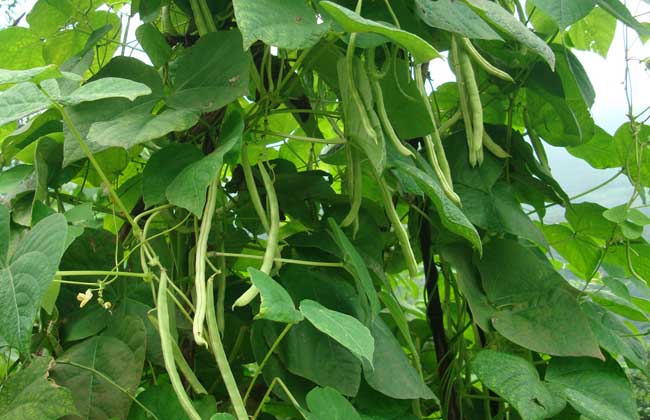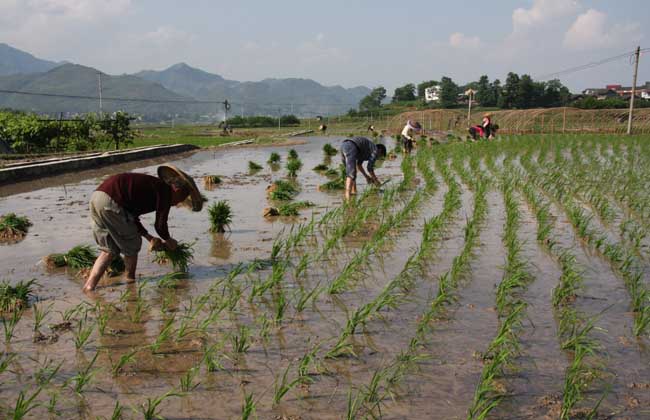Certification procedure for organic agriculture

The concept of organic agriculture was first put forward in France and Switzerland in the 1920s. With the formulation of some international and national organic standards in the 1980s, some developed countries began to attach importance to organic agriculture and encouraged farmers to transform from conventional agricultural production to organic agricultural production. At this time, the concept of organic agriculture began to be widely accepted. Let's take a look at the organic agriculture certification process.
Certification procedure for organic agriculture
1. Application
The ① applicant shall submit a formal application to the branch center, receive the Organic Food Certification Application form and pay the application fee.
② applicants fill in the "Organic Food Certification Application form" and receive documents such as "Organic Food Certification questionnaire" and "Organic Food Certification written data list".
The ③ branch center requires the applicant to establish the enterprise's quality management system, technical measures of the quality assurance system and quality information tracking and processing system in accordance with the requirements of this standard.
2. Pre-examine and make a preliminary inspection plan
The ① branch center conducts a pre-examination of the applicant. If the pre-examination is qualified, the sub-center will copy the relevant materials to the certification center.
According to the project information provided by the sub-center, the ② certification center estimates the inspection time (usually requires 2 inspections, one production process and one processing).
According to the inspection time and the detailed rules for the management of certification fees, the ③ certification center shall formulate a preliminary inspection plan and estimate the certification fee.
The ④ certification center sends the acceptance notice and the organic food certification and inspection contract to the enterprise and notifies the sub-center at the same time.
3. Sign the organic food certification and inspection contract
After confirming the acceptance notice, the ① applicant shall sign the Inspection contract with the Certification Authority.
② according to the requirements of the Inspection contract, the applicant shall pay 50% of the relevant fees to ensure the normal development of the pre-certification work.
The ③ applicant appoints an internal inspector (1 person for production and 1 person for processing) to cooperate with the certification work and further prepare relevant materials.
All ④ materials shall be copied to the sub-center using a written document and an electronic document.
4. Review
The ① branch center conducts a comprehensive review of the applicant and his materials.
The ② branch center will copy the audit opinions and all the materials of the applicant to the certification center.
The ③ Certification Authority reviews and makes a "when" decision to carry out the inspection.
When the ④ fails to pass the examination, the Certification Authority shall notify the applicant and will no longer accept the application in that year.
5. On-site inspection and evaluation
After all the materials of ① have passed the examination, the Certification Center shall send qualified inspectors.
The ② inspector shall obtain the relevant information of the applicant from the certification center or sub-center, and conduct on-the-spot inspection and evaluation of the applicant's quality management system, production process control system, tracking system, as well as origin, production, processing, warehousing, transportation, trade, etc., in accordance with the requirements of these standards.
When ③ is necessary, the inspector shall take samples of the soil and products, and the applicant shall send the samples to the designated quality inspection institution for testing.
6. Prepare the inspection report
After completing the inspection, the ① inspector shall prepare the inspection report according to the requirements of the certification authority.
The ② inspector will send the inspection report to the certification center within two weeks after the inspection is completed.
7. Comprehensive review and evaluation opinions
The ① Certification Center shall conduct a comprehensive examination and evaluation according to the application form, questionnaire and other relevant materials provided by the applicant, as well as the inspection report and sample inspection report of the inspector, and compile the certification evaluation form.
② put forward the evaluation opinion and submitted it to the Technical Committee for consideration.
8. certification decision personnel / Technical Committee Resolution: the certification decision personnel shall conduct a comprehensive examination of the basic information questionnaire of the applicant, the inspection report of the inspector and the evaluation opinions of the certification center, make a decision to agree to issue a certificate, issue a certificate conditionally, issue a certificate organically or refuse to issue a certificate, and the certificate shall be valid for one year. When the application for a project is more complex (such as aquaculture, fisheries, processing, etc.), or within a period of time (such as 6 months), a working meeting of the Technical Committee will be held to make a certification decision on the corresponding project. Certification decision-makers / members of the Technical Committee should withdraw if they have a direct or indirect economic interest with the applicant.
① agrees to issue the certificate: the content of the application is fully in line with the organic food standard, and the organic food certificate will be issued.
② conditional certification: the application content is basically in line with organic food standards, but some aspects need to be improved. After the applicant has promised in writing to improve as required, an organic food certificate can also be issued.
③ organic conversion certificate: the applicant's base has entered the conversion period of more than one year, and continue to implement the organic conversion plan and issue the organic conversion base certificate. The products harvested from the organic conversion base are processed in an organic way and can be sold as organic conversion products, that is, "organic food during the transition period".
④ refuses to issue a certificate: the application content does not meet the requirements of organic food standards, and the Technical Committee refuses to issue a certificate, giving reasons.
9. the use of organic food marks: sign the license contract for the use of organic food marks and go through the formalities for the use of organic food trademarks in accordance with the requirements of the certificate and the regulations on the use of organic food marks.
Organic agriculture maintains certification procedures
1. Notice: in the new production year, the center / sub-center shall issue a notice of maintaining certification to the certified enterprise, which includes the following contents:
The documents that should be prepared by ① enterprises: the documents required by the Organic Food retention Certification questionnaire and the Organic Food retention Certification written data list.
② check plan.
③ maintains certification fees.
2. On-site inspection and evaluation
① Certification Center sends qualified inspectors.
The ② inspector shall obtain the relevant information of the applicant from the certification center or sub-center, and obtain the documents required by the "maintain certification questionnaire" and "list" on the spot, and according to the requirements of GB/T19630.1-.4 "organic products", conduct on-the-spot inspection and evaluation of the applicant's quality management system, production process control system, tracking system, origin, production, processing, warehousing, transportation, trade, etc. In particular, the applicant verifies and checks the completion and implementation of the rectification requirements issued last year.
③ if necessary, the inspector shall take samples of the soil and products, and the inspector and the applicant shall jointly seal the samples and send the samples to the designated quality inspection institution for testing.
3. Prepare the inspection report
After completing the inspection, the ① inspector shall prepare the inspection report according to the requirements of the certification authority.
The ② inspector will copy the inspection report to the Certification Authority within two weeks after the inspection is completed.
4. Comprehensive review and evaluation opinions
The ① Certification Center shall conduct a comprehensive examination and evaluation according to the relevant materials such as the maintenance certification questionnaire provided by the applicant, as well as the inspection report and sample inspection report of the inspector, and compile the certification evaluation form.
② put forward the evaluation opinion and submitted it to the Technical Committee for consideration.
5. Certification decision personnel / Technical Committee Resolution: certification decision personnel shall conduct a comprehensive examination of the basic information questionnaire of the applicant, the inspection report of the inspector and the evaluation opinions of the certification center, and make a decision to agree to issue a certificate, issue a certificate conditionally, issue a certificate organically or refuse to issue a certificate. The certificate is valid for one year. When the application for a project is more complex (such as aquaculture, fisheries, processing, etc.), or within a period of time (such as 6 months), a working meeting of the Technical Committee will be held to make a certification decision on the corresponding project. Certification decision-makers / members of the Technical Committee should withdraw if they have a direct or indirect economic interest with the applicant.
① agrees to issue the certificate: the content of the application is fully in line with the organic food standard, and the organic food certificate will be issued.
② conditional certification: the application content is basically in line with organic food standards, but some aspects need to be improved. After the applicant has promised in writing to improve as required, an organic food certificate can also be issued.
③ organic conversion certificate: the applicant's base has entered the conversion period of more than one year, and continue to implement the organic conversion plan and issue the organic conversion base certificate. The products harvested from the organic conversion base are processed in an organic way and can be sold as organic conversion products, that is, "organic food during the transition period".
④ refuses to issue a certificate: the Technical Committee refuses to issue a certificate while maintaining a serious violation of organic food standards during the certification period, giving reasons.
Related
- A course of planting techniques and methods on how to grow carrots
- How to plant the latest tulips?
- Is it better to pick tea in the morning or in the afternoon? When is the best time for tea to be picked? what is the third or fifth tea?
- Launch Yuanxiao Happy combination Haocha + Tea Yuan healthy Taste
- Penghu Tourism "Fireworks 20 Parade with You"
- 2022 West Lake Happiness holds "Digital Revitalization Voucher" and draws iphone13 and laptop.
- Banqiao Fuzhou social houses are designed to change start-up combined with police elimination to create a safe and livable environment
- The convenient measure of "mechanical weeding" in Xinbei has been abused and the Agriculture Bureau has imposed heavy penalties on the illegal land consolidation.
- Changgeng University Joins Hands with Four Memory Factories to Rescue Memory Talent Shortage
- The list of Taiwan's top 100 MVP managers is listed by the Director-General of the Farmers' Association of Sanxia District.



